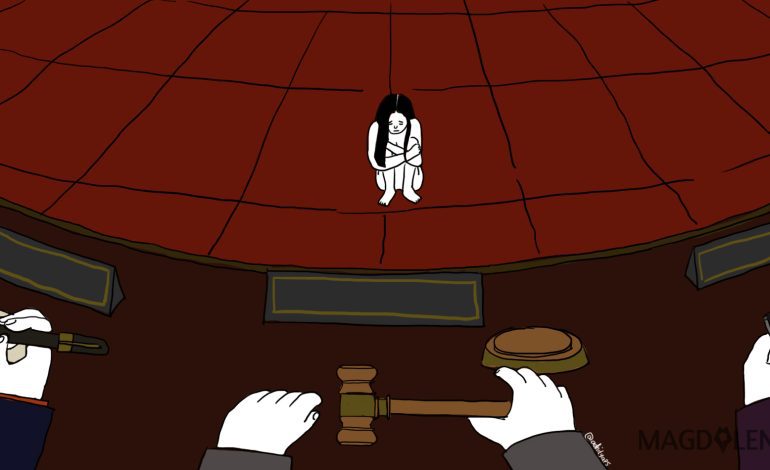Gender Inequality in Workplace and Women CEOs’ Failure to Recognize It

A few days ago, I attended the U.S.-Indonesia Women CEO Summit in Washington, D.C. I was one of some 30 students in a ballroom full of corporate executives and representative of organizations and non-profits from the U.S. and Indonesia.
The room was brimming with energy, excited to listen to the keynote speaker Minister of Finance Sri Mulyani Indrawati talk about gender inclusive economy. The lineup of panelists for the subsequent sessions were no less interesting: directors/CEO/COO/CFO from both countries representing various industries were ready to share their experience as women in leadership positions.
All was well until the discussion about gender equality and inclusivity in workplace started. I was taken aback, and at some point horrified, by some of the panelists’ views about gender-related problems that are still plaguing many industries.
Dismissal of gender inequality as a systemic problem
“I’ve never felt disrespected by my male subordinate so I don’t think biases, conscious or unconscious, is prevalent in my company.”
“We have many women in leadership position, so women don’t necessarily face challenges in the workplace.”

These are a few of the statements by some panelists that shocked me during a discussion about the problems women face in the workplace. They took me aback because those statements show that many people, including women who are role models, still do not acknowledge gender inequality and inclusivity as a systemic problem that has been plaguing our society for a long time.
According to the World Bank, Indonesia’s Gender Parity Index (GPI), a ratio of girls to boys used to measure gender equity in schools, actually looks promising. The GPI for primary education enrollment is 0.973, which shows an almost a one-to-one ratio of enrollment in primary schools. Even better, the index is greater than one for secondary and tertiary education, showing that there are more women than men enrolled in high schools and above. However, the Human Development Index for women in Indonesia is still below that of men, 0.660 to 0.712. The United Nations Development Programme (UNDP) data in 2016 also shows that only 50.9 percent of women participate in labor force, compared to 83.9 percent of men. Even worse, the per capita gross national income is only 6.668 for women while men stands at 13.391.
It’s evident that there is a clear disconnect between the number of women attaining higher education with the ones making it to the labor force. This signifies a still-prevalent gender inequity in the workplace, begging the question of what is happening in the workplace, or within the society itself, that discourage women to be a part of the economy.
With that fact in mind, I wonder what prompted those panelists to make such questionable statements. Was it because they were protected by their privilege that they were not at the receiving end of the problem? The statement “if it doesn’t happen to me, then it does not exist” is a logical fallacy. Moreover, it further invalidates other women’s experience, hurts the efforts made in eradicating gender inequality, and puts an end to the much-needed public discourse on the matter.
Calling out, calling in
“I don’t find any problem for women during negotiation. In fact, I find it beneficial to have a team of women to conduct a negotiation with men. It’s easier to achieve the goal.”
I was really horrified to hear a panelist saying this when answering a question about how women should proceed during negotiation.
Have the problems of sexism, misogyny, and gender inequality been so internalized for many women to the point that conscious and unconscious biases are normalized? In this case, even complicit in furthering the misogynist stereotype?
This case highlights the importance of calling in amongst women ourselves, and holding each other accountable for our actions. The road to gender equality is a work in progress, and we as a society have to work even harder to dismantle these problems and keep the discussion going inside, both within and outside of our community.
The problem of gender proportion
“We hire people based on merit, so we don’t have gender inequality problem during recruitment process and the male-female employee ratio is proportional.”
While meritocratic society is what we ideally want to achieve, simply saying that a company’s hiring process is based on merit does not guarantee a gender inclusive work environment. Inclusivity should not merely be measured by how many female employee a company has compared to male employee. The effort should also take into account the quality of work and workplace for women.
Are ambitious and career-driven women still viewed negatively when their male counterparts are lauded for possessing those traits? Are women still at the receiving end of sexist comments and unsolicited advices? Since most women are still the primary caretaker for their families, is the work environment accommodating to their needs? Does the company have a good (paid) maternity leave policy? Can male employees get paternity leave so they can support their wives? In an industry that is traditionally male dominated, does the male to female employee ratio holds? Or, for instance, there are still too few women working as engineer?
These are definitely not an exhaustive list of questions in measuring inclusivity. But starting the discussion using these questions instead of just bringing up the proportion of employee’s gender can address more dimensions in gender equity problem.
A long way to go
The panelists were definitely amazing women for achieving what they achieve, especially in this unequal society. However, we still need to acknowledge the persisting, systemic problem we are facing regardless of how high our achievements are. I am very appreciative of the Summit and grateful to have attended it, since it is one of the ways we keep the discussion about gender equality and inclusivity going. At the end of the day, as Minister Sri Mulyani said in her keynote speech, we are not done yet.
The fight is not just about us, it’s also about the other women around us.
Aqila Putriis a senior at Wesleyan University, majoring in Economics and Computer Science. She seeks comfort in codes, mathematical functions, and baked goods when humanity frustrates her.






















